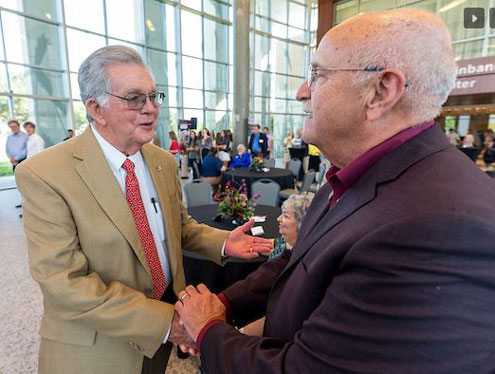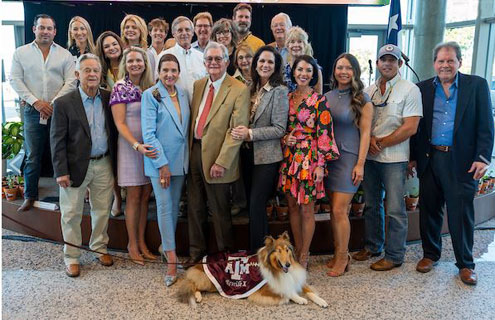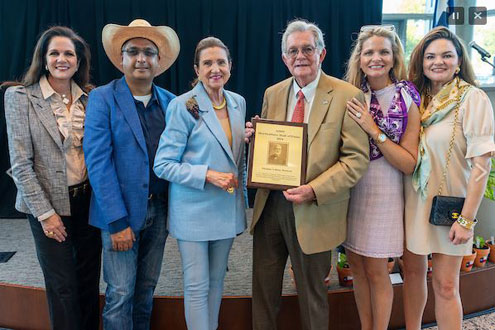Spirited Learning program connects students with industry and Munson’s impact in global viticulture
The Texas A&M College of Agriculture and Life Sciences Department of Horticultural Sciences opened its 2025 Spirited Learning fall series by celebrating the lasting legacy of T.V. Munson, a 19th century Texas scientist whose breakthroughs still safeguard wine production worldwide.

Munson, a prolific horticulture crop breeder, pioneered the use of native Texas grape root stocks to combat the devastating pest insect phylloxera, which nearly wiped out European vineyards in the late 1800s. His disease-resistant root stocks, grafted to grape varieties like merlot, Sangiovese and pinot noir, remain the foundation of global viticulture today.
Honoring a legacy of innovation
More than two dozen members of the Munson family attended the event and several toured horticultural facilities the following day.

Jeffrey W. Savell, Ph.D., vice chancellor and dean for Agriculture and Life Sciences, called Munson’s impact “a powerful reminder of the difference one person can make.”
“He made a tremendous impact on the wine industry, and his legacy continues to shape agriculture and horticulture more than century later,” Savell said.
Amit Dhingra, Ph.D., head of the Department of Horticultural Sciences, said Munson’s long-lasting impact in the global wine industry and horticulture should be an inspiration.
“T.V. Munson is known the world over for his impact on wine, but his work extended far beyond grapes,” Dhingra said. “He was a prolific innovator and creator whose legacy continues to inspire us. We see ourselves as part of that chain, that force of life itself, stewarding the science that delivers solutions for Texas and the world.”
Ben Munson IV, of Denison, representing the Munson family as T.V. Munson’s grandnephew, said the recognition of T.V. Munson’s significance in the history of Texas and global horticulture is indicative of the department’s commitment to meet challenges with innovative and practical science-based solutions.
“We’re grateful to support the preservation of his legacy and to see other researchers carry on the art and science of horticulture,” he said. “There’s so much energy here at Texas A&M. It’s exciting to think about the future of Texas’ wine industry, but also the future of horticulture and the difference the people here are making when it comes to plant science and the soil and being stewards of what God put in our care.”

Spirited Learning creates connection
The Spirited Learning program, launched in 2022, brings together students, faculty, the Aggie community and Texas horticulture industry leaders to explore the intersections of science, business and culture in horticulture.
This Spirited Learning event featured presentations by owners of The Pecan Shed and Messina Hof Winery, who shared perspectives on their industries and opportunities within them.
The Spirited Learning events regularly attract more than 400 participants, including students who have represented over 100 degree tracks at Texas A&M, underscoring the program’s cross-disciplinary reach. Faculty, administrators, industry representatives and community members also attend, making the gatherings a vibrant space for discussion and collaboration.
The Texas horticulture industry has an estimated nearly $70 billion economic impact annually, and leaders say Spirited Learning helps prepare the next generation to advance that momentum.
“Horticulture is evolving,” Dhingra said. “It bridges science, technology, art and business. Our goal with Spirited Learning is to show students, and our extended community, that horticulture is woven into everything we do, from sustainability and wellness to food security and economic growth for today and the future.”


